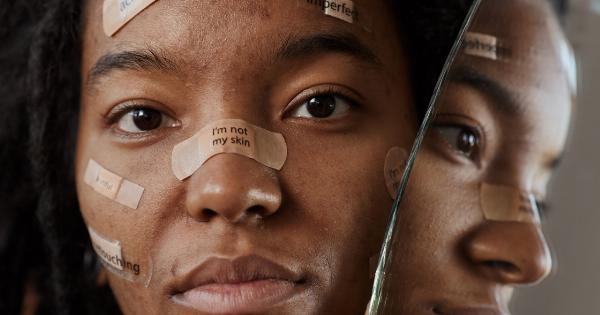Acne is a common skin problem that affects many teenagers, and it can have a significant impact on their social and emotional well-being.
While there are many factors that contribute to the development of acne, including genetics, hormones, and lifestyle, diet plays an important role in exacerbating or alleviating the condition. In this article, we will explore how food affects adolescent acne and what dietary changes can help prevent or reduce acne breakouts.
The link between food and acne
Studies have shown that certain foods can trigger or aggravate acne in adolescents. These foods include:.
- Sugar and high-glycemic index foods
- Dairy products
- Fast food and junk food
- Chocolate
- Greasy and oily foods
The exact mechanism by which these foods contribute to acne is not fully understood, but it is believed to be related to their effect on hormones and inflammation in the body.
Sugar and high-glycemic index foods
When we consume foods that are high in sugar or have a high glycemic index, our blood sugar levels spike, which triggers the release of insulin.
Elevated insulin levels can lead to an increase in the production of sebum, the oily substance that clogs pores and leads to acne. In addition, high-glycemic index foods can promote inflammation in the body, which is also linked to acne.
To minimize the impact of sugar and high-glycemic index foods on acne, adolescents should limit their intake of sugary drinks, candy, processed snacks, and refined carbohydrates such as white bread, pasta, and rice.
Instead, they should focus on eating whole foods such as fruits, vegetables, and whole grains, which are lower in sugar and have a lower glycemic index.
Dairy products
Dairy products, particularly milk and cheese, have been linked to acne in many studies.
It is believed that the hormones present in dairy products, such as estrogen and progesterone, stimulate oil glands in the skin, leading to an increase in sebum production and acne breakouts. In addition, milk contains a protein called casein, which can trigger an inflammatory response in some individuals.
To reduce the impact of dairy products on acne, adolescents can try cutting back on milk and cheese and opting for alternative sources of protein and calcium, such as nuts, beans, and leafy greens.
If they do consume dairy, they could try choosing low-fat or non-fat options, which may be less likely to trigger acne breakouts.
Fast food and junk food
Fast food and junk food are often high in fat, sugar, and salt, which can exacerbate acne. In addition, these foods tend to be highly processed and lacking in essential nutrients that the body needs to maintain healthy skin.
To minimize the impact of fast food and junk food on acne, adolescents should aim to reduce their intake of these foods.
Instead, they should focus on eating a diet that is rich in fruits, vegetables, whole grains, lean protein, and healthy fats such as those found in nuts, seeds, avocados, and fatty fish.
Chocolate
Chocolate has long been thought to cause acne, but the evidence to support this claim is mixed. Some studies have found a link between chocolate consumption and acne, while others have not.
To be on the safe side, adolescents who are prone to acne may want to limit their intake of chocolate or opt for dark chocolate, which is lower in sugar and may have other health benefits.
Greasy and oily foods
While it is a common myth that greasy and oily foods cause acne, there is little scientific evidence to support this claim.
However, if you notice that your acne tends to flare up after eating greasy foods, it may be best to avoid them or opt for healthier sources of fat.
Healthy fats, such as those found in nuts, seeds, avocados, and olive oil, may actually help reduce inflammation in the body and promote healthy skin. So instead of avoiding all fats, aim to incorporate healthy fats into your diet.
Conclusion
While diet alone cannot cure acne, it can play a significant role in preventing or reducing acne breakouts.
By avoiding or minimizing the intake of sugar, high-glycemic index foods, dairy products, fast food, junk food, and chocolate, adolescents can improve their chances of having clear, healthy skin.






























